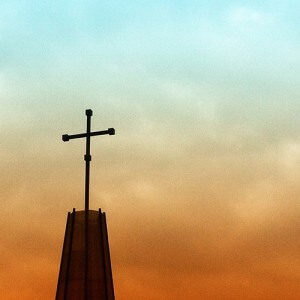Conflict of Religion: Teacher Claims School Violated Constitution
August 27th, 2015
A conflict between Judaism, Christianity and the Constitution has recently been brought to the court system in Colorado. A Jewish teacher filed a lawsuit against the Fremont RE-2 School District, its superintendent, and its principal for allegedly promoting Christianity in the school. Whether the school’s actions are a violation of the Constitution will be decided by the court system, but it will take some time. In the meantime, it is important to understand what exactly this teacher is alleging and have a conversation about the Constitutional implications of the school’s actions.
The Lawsuit
Teacher Robert Basevitz filed the lawsuit alleging that the school “operates largely to promote the evangelical Christian ideals” of a church that operates near the school. The church, The Cowboy Church at Crossroads, has a long-standing presence in the high school, and rents cafeteria space for Sunday morning services. In addition, something that played a major factor in Mr. Basevitz’s decision to sue, the church also hosts a prayer service every morning in the school around the flagpole, and hosts a pizza lunch with Bible study each day in one of the school’s classrooms.
The lawsuit claims that these activities are in violation of the Constitution as they serve to promote one religion over another in a public school. Mr. Basevitz claims that the close connection to the church led him to feel excluded because of his religion, and caused students to single him out for being Jewish. After he filed his formal complaint, Mr. Basevitz was transferred to an elementary school, a decision that may or may not come back to haunt the school if the courts find merit to the allegations in the lawsuit that school leaders publicly support the church’s activities as well as those of its pastor.
The Law
The law on this issue is in a state of constant ebb and flow, as each case is highly fact dependent and the makeup of the Supreme Court has led to some differing opinions through the many years since our Constitution was established. Some Christians argue that they feel targeted by lawsuits such as this and believe that they have the right to worship anywhere, including public schools, based on the Christian principles held by the founding fathers of the United States. On the other side of the aisle, in addition to those whose arguments are Constitution-based and non-religious, are members of other religious groups who feel that the country’s history of religious indoctrination has been used in the past to subdue and oppress anyone who did not follow the Christian faith.
Whether one group’s interpretation of the Constitution is more correct than the other is for the courts. However, it is interesting to note that according to Mr. Basevitz’s allegations, this particular public school chose to promote a Christian prayer ceremony over the public address system on the same day Rosh Hashanah began in 2014. Time will tell how this lawsuit will play out, and what it will mean for the future of religious activity in, near and involving public schools. In the meantime, Universal Life Church Case Law will continue to monitor this case, and any others that may have an impact on the rights guaranteed us all by the Constitution.
Photo Credit: Artondra Hall via Compfight cc



